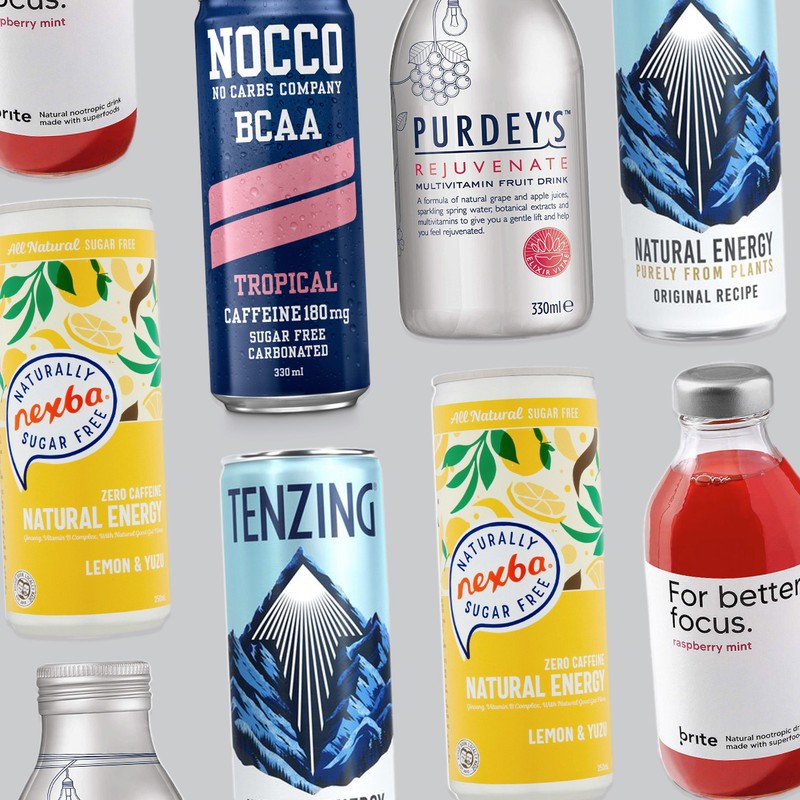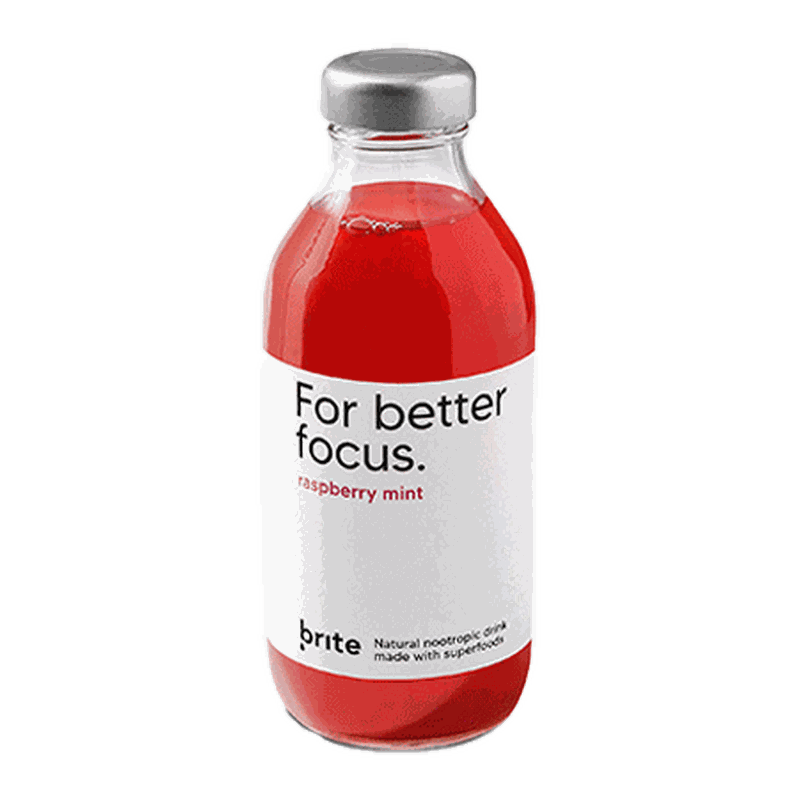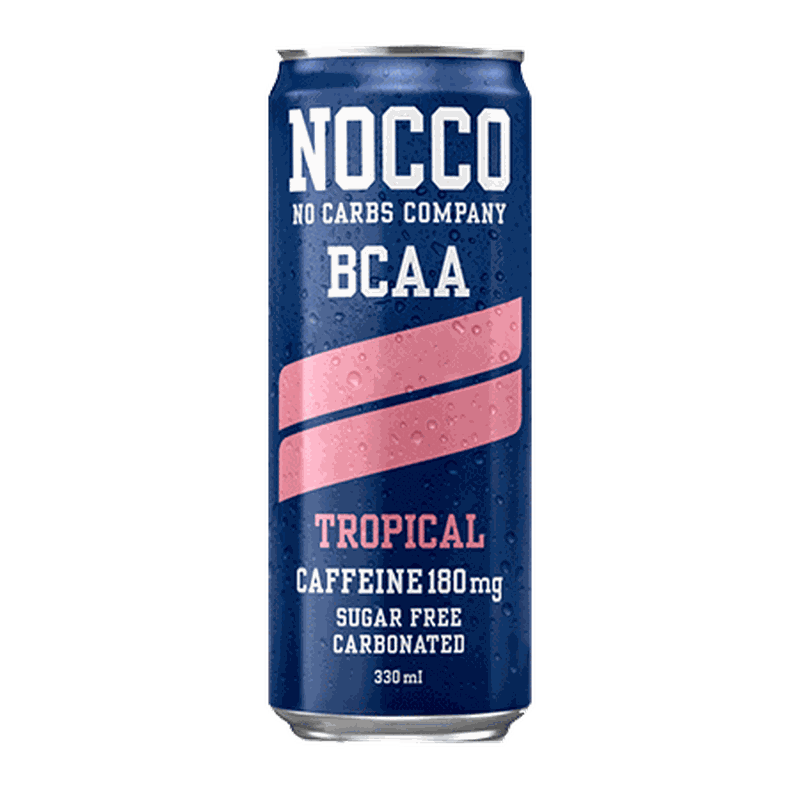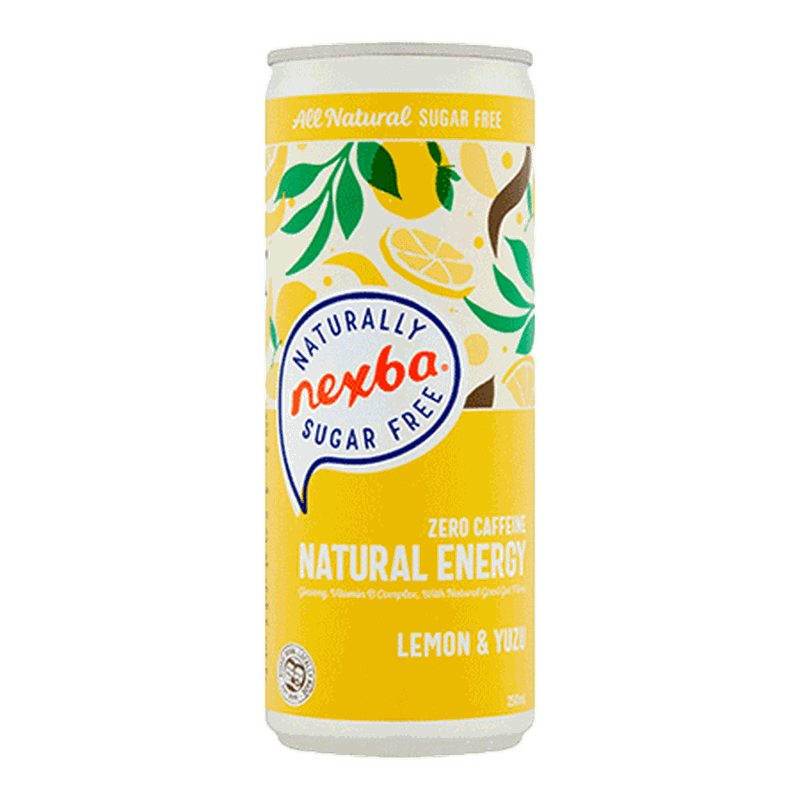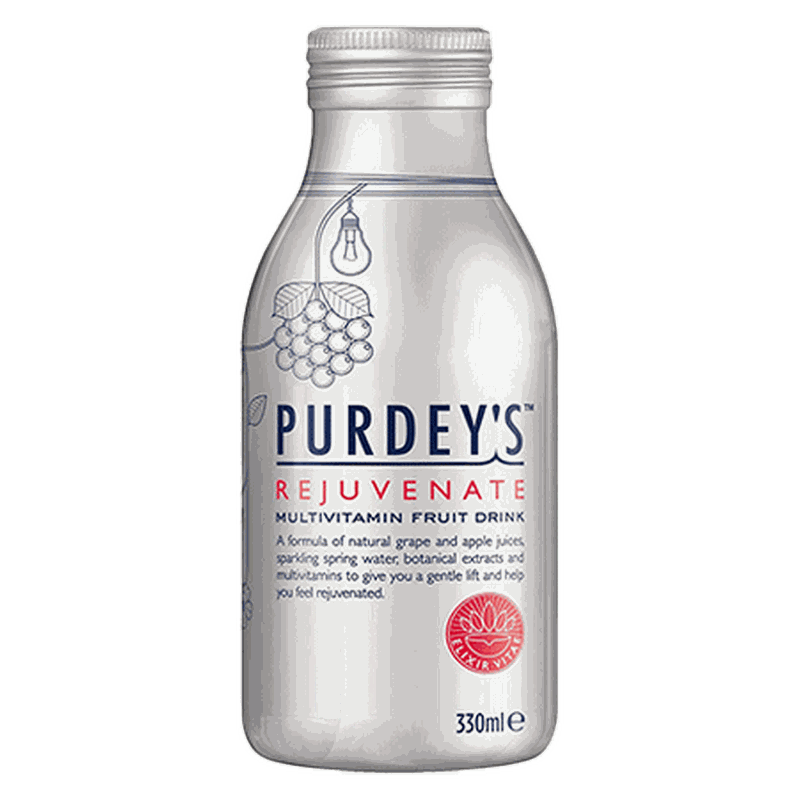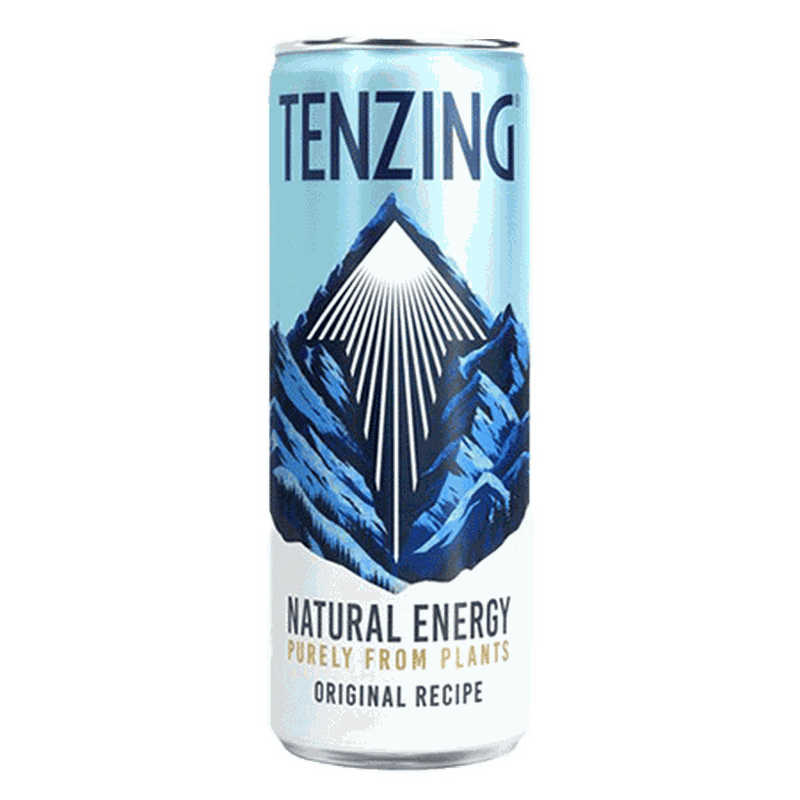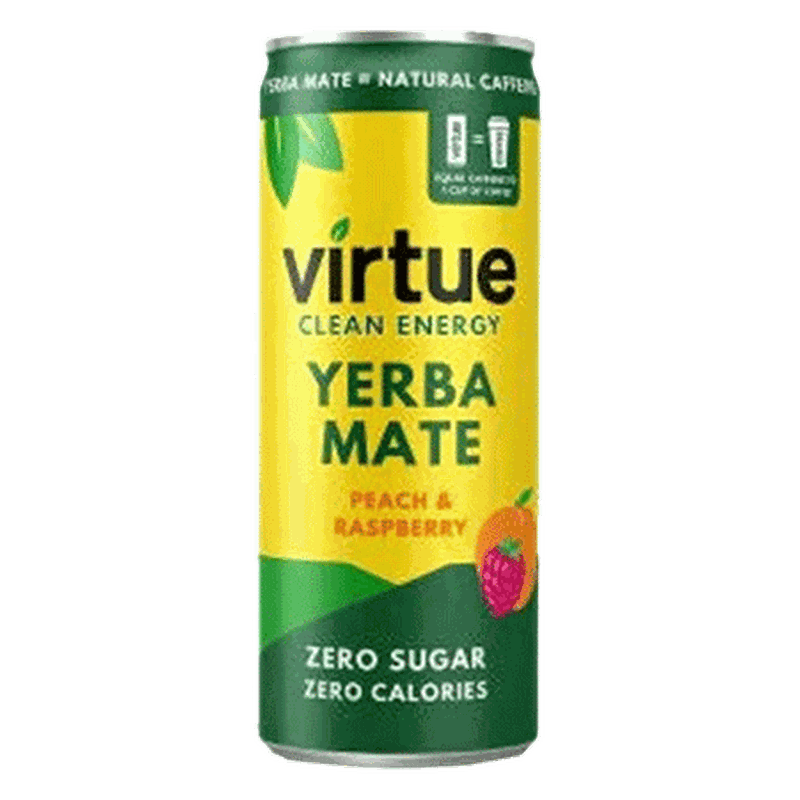A Nutritionist’s Guide To Energy Drinks
Watch The Caffeine Content
“Sipping on an energy drink that contains ingredients like green tea, coffee and guarana can make you feel more alert and can boost concentration and enhance athletic performance. However, you need to keep an eye on caffeine content. Most energy drinks contain around 80mg of caffeine per eight ounces, which is three times the amount of caffeine in cola drinks. Since many energy drinks are packaged in containers that hold 12 ounces or more, the total amount of caffeine can easily reach 200mg or more. It’s thought 200-300mg of caffeine per day is a safe amount for adults, but if you’re also drinking tea and coffee, you need to be careful. You don’t need that much caffeine to feel alert – 100mg is plenty.” – Rosie Millen, nutritionist
Keep An Eye On Sugar
“We all know sugar is the enemy. Anything ending in ‘-ose’ is a form of sugar – and this could be glucose, sucrose or fructose on a label. Sweeteners can be just as bad, especially aspartame and sucralose, which are reported to be carcinogenic. Stevia is the safest natural sweetener, so look for drinks made with stevia instead.” – Rosie
Look Out For Taurine
“Many energy drinks contain high levels of taurine. Consuming an energy drink can boost your levels of taurine by six to 16 times, which has the potential to increase blood pressure and heart rate, just like caffeine. This combination can be dangerous, particularly for those with weaker hearts. Studies have shown taurine can also affect the development of children, making energy drinks potentially unsafe for adolescents. You have to be 16 to buy energy drinks in the UK, and this is a part of the reasoning behind that law. Also, look out for ginseng, which is often added to natural energy drinks. By and large, ginseng is safe, but can negatively interact with caffeine, alcohol and antidepressants.” – Sas Parsad, founder of The Gut Co
Drink Them At Mealtimes
“Consuming an energy drink with food can help limit the absorption of caffeine. The gut is best at absorbing the contents of food, supplements, medications and drinks on an empty stomach, so ensuring you consume the energy drink with a meal can stop the effectiveness of the absorption somewhat. When fibre is consumed by the body, it can limit how quickly caffeine is absorbed into our bloodstream, so eating fibrous foods can reduce the symptoms of caffeine intake, which is no bad thing.” – Sas
Stick To Smaller Portion Sizes
“According to the NHS, adults should not be consuming more than 30g of free sugars in a day – this is equivalent to seven sugar cubes. Energy drinks can come in large servings, and it can be easy to go over this limit with just half a can. Remember, there are over 50 words for sugar, so read the label carefully. If you are relying on energy drinks to get through the day, look at your diet – ideally, you should be consuming food and drink that provides sustained energy release throughout the day without major energy crashes. If you do have an energy drink, choose one with natural sweeteners, a responsible amount of caffeine, and drink them in moderation.” – Monisha Mahtani, registered nutritional therapist
Here, The Experts Weigh In On Seven Popular Energy Drinks…
Brite
Containing 100mg of caffeine, 100mg of l-theanine (the amino acid found in green tea) and stress-busting ashwagandha, these drinks promise more focus without the jitters of caffeine. “This is a decent option,” says Rosie. “Unlike other brands, it focuses on clean energy without sugar, calories or chemicals.” The use of stevia, a natural sweetener, is a bonus.
Available at BriteDrinks.com
Nocco
You’ve probably spied Nocco’s drinks at your local gym. “They’re popular with active guys as they contain BCAAs, which have been linked to muscular growth,” Rosie continues. “They come in a great array of flavours and contain six different vitamins, but a 330ml can provides 180mg of caffeine, which is more than a Red Bull, so drink responsibly.”
Available at Groceries.Asda.com
Nexba
“These drinks don’t actually contain any caffeine,” says Rosie. “Instead, they rely on nutrients like ginseng, B vitamins and fibre for a natural energy boost. Each can contains roughly ten calories, too. Nexba drinks are definitely some of the best if you’re looking for a natural option.”
Available at HollandAndBarrett.com
Purdey's
A popular natural alternative, Purdey’s offers a range of sparkling drinks, all of which are a variation of fruit juices, botanicals and B vitamins. “If you’re looking for natural energy without any caffeine, Purdey’s could be a good option,” says Christina Mamada, associate nutritionist at Vitl. “It contains guarana, which is a naturally stimulating caffeine alternative.” However, they’re a no-go for Rosie. “With 10g of sugar per can, this is essentially sugary, carbonated water.”
Available at Groceries.Asda.com
Tenzing
A plant-based option that’s free from any nasties, Tenzing is a solid option if you’re looking for long-lasting energy. “Each can contains fewer than 50 calories, energising vitamin C, natural caffeine and hydrating electrolytes from Himalayan rock salt,” says Rosie. “This is a pretty healthy overall option, especially as each serving contains a responsible amount of caffeine.”
Available at TenzingNaturalEnergy.com
Virtue
Made with yerba mate, a naturally energising leaf which has more antioxidants than green tea, Virtue contains 80mg of caffeine per can as well as vitamins, minerals and amino acids. “This is a good option for a natural source of energy. It also contains some B vitamins, but at small doses, it won’t have a significant impact on your dietary intake,” adds Christina.
Available at HollandAndBarrett.com
For more, head to MissNutritionist.com, TheGutCo.com, MonishaMahtani.com and Vitl.com
All products on this page have been selected by our editorial team, however we may make commission on some products.
DISCLAIMER: We endeavour to always credit the correct original source of every image we use. If you think a credit may be incorrect, please contact us at [email protected].
